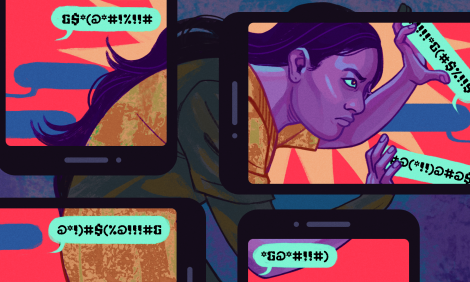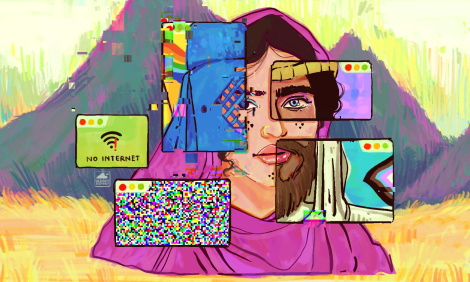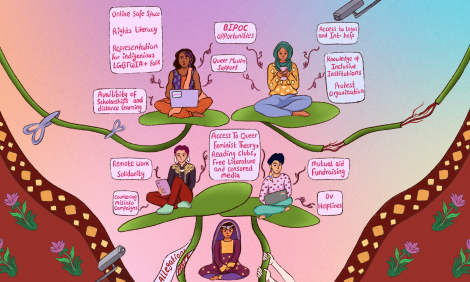
Feminist talk
Shattering Women’s Futures: Evidence Of Patriarchal Control Of The Cybersphere In Sri Lanka
Patriarchal control on digital access in Sri Lanka continues to keep women away from opportunities and connections, creating a sense of alienation amongst them. Zinara Rathnayake discusses how family restrictions on the ownership and usage of the internet and smartphones impact Sri Lankan women.

Feminist talk
In Conversation: Online Violence Bars Women and LGBTQI+ Folks' Access to the Internet in Myanmar
Sexism, misogyny and homophobia bars women and gender-diverse folks' access to the internet in Myanmar, leading to violence to continue to perpetuate without any repercussions for perpertrators. In this podcast, Nandar talks to a digital security expert about experiences of vulnerable people on the internet.

Feminist talk
Commodifying Yourself For Digital Access in Malaysia
A short comic on the anxieties of sharing yourself and your work online, and how one has to commodify all aspects of themselves online, which can open doors to unwanted risks and online hate.

Feminist talk
Afghan Queer Community’s Access to The Internet Is A Double Edged Sword Under Taliban Rule
As the Taliban government took over Afghanistan in 2021, the already limited space for women and LGBTQI+ folks started to shrink even more. The effects were visible not only in public offline spaces, but very clearly on the internet as well, as members of the Taliban surveilled on people through their social media activities, and subjected them to physical violence. Artemis Akbary speaks to…

Editorial
Access Denied: Gender Digital Divide As A Form Of Violence in South and Southeast Asia
Despite the boom in the usage of the internet and technology in the past few decades, gender digital divide continues to be a hindrance around the world that bars women, non-binary and gender diverse people from accesssing the full potential of this communication marvel. As a result, they are left behind as the world, led by cisgender heterosexual men, moves forward, making structural gendered…

Access Denied: Gender Digital Divide As A Form Of Violence in South and Southeast Asia
While the significance of digital access cannot be contested, in small pockets of Asian communities and households, the internet continues to be a luxury for most people for various reasons, including the lack of financial resources, absence of infrastructure, or political and/or patriarchal control. And much like everything else, this lack of digital access impacts women and LGBTQI+ folks …

Editorial
Towards trans prosperity
This edition encompasses the fused multiverses coexisting among trans populations, across the Latin American Global South, also known by the Kuna peoples as Abya Yala. From visual arts to political science, this writing collection maps and highlights best practices engaging with technology as a tool for political emancipation, autonomy and self-determination.

Feminist talk
The Theology of Transmutation
Ventura Profana, a Brazilian artist and writer, narrates an Afrofuturist manifesto engagingtrans epistemology and theological studies to examine the colonial legacies and historical choreographies of the white supremacist matrix; Ventura explores the historical instrumentalisation of Christianity as a device for the maintenance of whiteness. In her artistic practice, involving digital collage…

Feminist talk
Maricón-temporary strategies for socio-political impact in Latin America: technology and subversion
Sol Ámbar Sánchez Latorre, sociologist, writer and activist, writes about the progress of juridicial processes in Colombia, expanding on the scope of communications and digital media facilitating political mobilisation for trans, travesti and non-binary people; in her writing, she interrogates the realm of representation and exposes the ways in which violence is replicated.

Feminist talk
Gender Diversity In STEAM: Challenges And Possibilities In Leadership For Trans Workers In Latin America
Tatiana Buelvas Valdiris, an expert consultant in Diversity, Equity and Inclusion, writes an article from the perspective of cis-trans alliances, and how civil society organisations, the private sector, and academia can establish connections to enable labor inclusion and leadership.




